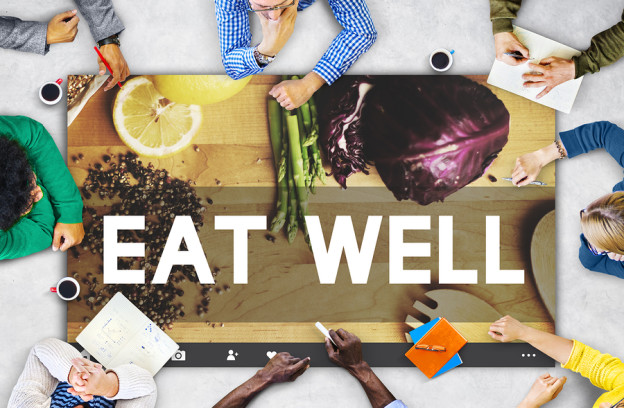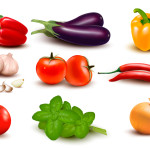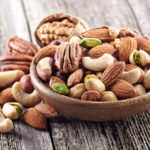By David Blyweiss, M.D., Advanced Natural Wellness
February 26, 2020
There are lots of ways to lose weight, but it’s not just “calories in calories out.” It’s not just one specific food versus another. People get really confused about this.
They want to know the magic food combination to make the pounds fall away…
Well, when it comes to losing weight, it’s a little more complicated than that.
One of the problems I run into with the idea of specifying any food as a “diet” or “non-diet” food is the way people react to it.
For example, I’ve had patients who have heard that fats pack on the pounds. So they avoid fats altogether and load up on carbs instead. Others have been told protein aids in weight loss, so they focus on high protein foods to the exclusion of all others.
When you start ditching certain food groups in favor of others, it disrupts healthy eating patterns and can quickly turn on you.
MD Exposes the Hidden Danger to Your Eyes

When your eyesight starts to fail, it's a real problem. Suddenly you can't go to the grocery store... you can't get to the doctor if you have an emergency... you can't meet your friends for dinner…
Your "regular" doctor doesn't have time to keep up with the latest research. And the same goes for eye doctors. They go to school to learn how to fit you for glasses and contacts, but have no way of preventing the damage and loss of eyesight that threatens your freedom and independence.
Let me show you something that explains a LOT about how your eyes work.
In my FREE Special Report, I'll show you a HUGE, untapped resource for your eyes that safely and naturally restores clear, effortless eyesight.
Click here to get started...
So let me clear up some confusion and give you a few tips.
First of all, it’s not necessarily true that fats make you fat. In fact, certain healthy fats can actually encourage weight loss.
Avocados are a great example. Sure, you don’t want to sit down and eat two or three of them in a row. But eating just a half of an avocado at lunch can reduce your desire to eat by about 40% over the next three to five hours.
Extra virgin olive oil is another good example. It’s loaded with healthy fats that help counter obesity (especially belly fat) and slash diabetes to shreds.
What About Protein?
Well, protein really can help you lose weight. Part of the reason is because it takes more calories to digest protein than it does to digest carbohydrates. In fact, it’s estimated we burn up to 30% of the calories in protein just during the digestion process.
Plus, protein helps you feel full longer than carbs or fat. This means you’ll be less likely to fill up on empty calories during the day.
But it doesn’t mean you should eat more protein than your body needs – or eat it to the exclusion of all else.
Your protein requirements are actually pretty small. Unless you exercise a lot or have lost protein synthesis due to aging, you likely only need about 45-55 grams daily.
The World's Quickest Solution for Ending Prostate and Urinary Misery
This has recently been revealed to be one of the only real breakthroughs in prostate health.
The seeds of a strange fruit (sometimes called "Chinese Apples") hold powerful phytonutrients that are a revolution in prostate health.
In fact, UCLA and Veterans Administration research have now proved this to be true.
Not only that, but it may be the worlds quickest solution for ending prostate misery.
Simply stated, these phytonutrients represent a huge step beyond beta sitosterol, saw palmetto, and other phytosterols alone.
Simply click HERE if you want to have fast prostate relief...restful, uninterrupted sleep...no more constant "urges to go"...enhanced virility...and optimal prostate support for life.
To put this in perspective, just two 3-ounce beef patties deliver about 40 grams of protein. Two 3-ounce wild-caught salmon steaks deliver about the same. So there’s no need to go overboard on your protein intake.
Let’s Not Forget Those Fruits and Veggies
Some people eating a low-carb diet take it to extremes. They should be focused on limited refined carbs – no white flour, white rice, or white sugar.
But people who go too far also try to avoid fruit and vegetable sources. However, your body needs carbohydrates for energy.
This being said, get the bulk of your carbohydrates from low glycemic plant sources. Tomatoes, mushrooms, greens, cucumber, squash, quinoa and buckwheat are all good sources.
Most fruits – with the exception of melons, pineapple, mango, bananas and raisins – are also considered low glycemic carbs.
Load your plate with veggies at each meal, then fill in the rest with a small amount of healthy fats and clean-sourced proteins. Keep your calories to a couple thousand a day and add in some exercise too. Do this 90% of the time and you’ll automatically be eating your way to weight loss.
The other 10% of the time eat some of the foods you enjoy, even if they don’t promote weight loss. This way you won’t feel “cheated”… and you’ll be more apt to be successful in your goals.
One of my favorites is a Milton’s cauliflower crust vegetarian pizza from Costco. I actually add a little extra pizza sauce along with some cooked down mushrooms, onions, and peppers.
Then – every once in a while – I’ll add some thin sliced crisp pepperoni. My mouth is watering just thinking about it.
To help boost up your fat-burning capacity even further, add more spicy foods to your meals. Hot spices like red chili pepper, capsaicin, ginger and black pepper have a high thermogenic effect that stimulates your metabolism. This can really bump up your ability to burn fat.
Drinking green tea and coffee can also speed up your metabolism when you drink them. They both contain an antioxidant called chlorogenic acid, which helps your body use fat for energy. Just leave out the sugar… and enjoy.
SOURCES:
Wien M, et al. A randomized 3×3 crossover study to evaluate the effect of Hass avocado intake on post-ingestive satiety, glucose and insulin levels, and subsequent energy intake in overweight adults. Nutr J. 2013 Nov 27;12:155.
Nancy Babio, et al. Mediterranean diets and metabolic syndrome status in the PREDIMED randomized trial. CMAJ, October 2014.
Westerterp-Plantenga M. The significance of protein in food intake and body weight regulation. Curr Opin Clin Nutr Metab Care. 2003 Nov;6(6):635-8.
Westerterp-Plantenga M, et al. Metabolic effects of spices, teas, and caffeine. Physiol Behav. 2006 Aug 30;89(1):85-91.
Venables MC. Green tea extract ingestion, fat oxidation, and glucose tolerance in healthy humans. American Journal of Clinical Nutrition.2008;87:778-784.







